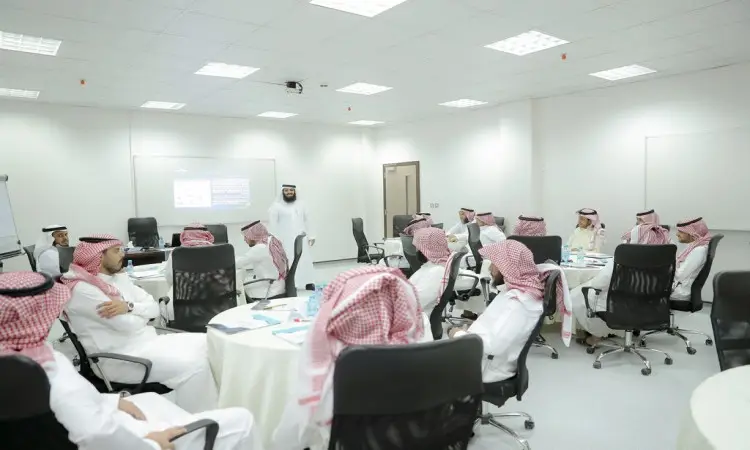The University, represented by the College of Education, launched a training program for male and female teachers on Sunday morning, in cooperation with the Ministry of Education's initiative entitled "Managing the Learning Environment in Competency-Based Education", in the presence of more than 200 male and female teachers. This program, which lasts for a whole month at the college headquarters, aims to develop and succeed the educational process, through the new roles it will provide, which will have positive implications on the performance of male and female teachers.
The training program, which comes to activate the university's role in serving the community, includes equipping teachers with the necessary skills to activate modern technologies, various teaching skills and thinking skills, and reviewing regional and international experiences in this field. It also aims to develop the professional development of teachers and equip them with the skills to manage the learning environment in light of competency-based education to achieve motivation and attractiveness of learning.
The program seeks to equip teachers with some appropriate teaching strategies and skills in how to design and employ technology in their teaching, in order to make learning more attractive, taking into account individual differences, in addition to establishing the theoretical background and knowledge of competency-based education, providing teachers with methods of teaching thinking skills, and identifying skills to deal with individual differences between learners in education.
The themes of the training program vary from defining the concept of competency-based education, its importance, characteristics, success factors in the public education system, diagnosing the reality of the learner and the challenges he faces in the learning environment from the perspective of competency-based education, the concept of differentiated teaching, the assumptions on which teaching is based, as well as the difference between the concept of differentiated teaching, the concept of individualization of education, the principle of taking into account individual differences, and traditional teaching.
Teachers participating in the program will gain modern knowledge about the use of contemporary methods and technologies in competency-based education, learn about modern educational software and skills and their role in the field of teaching and learning, in addition to introducing them to how to integrate and employ technology in education and the factors to choose it, and help them better respond to the requirements of 21st century education, by understanding critical thinking, communication, collaboration, and creativity skills.
 Official government website of the Government of the Kingdom of Saudi Arabia
Official government website of the Government of the Kingdom of Saudi Arabia 




